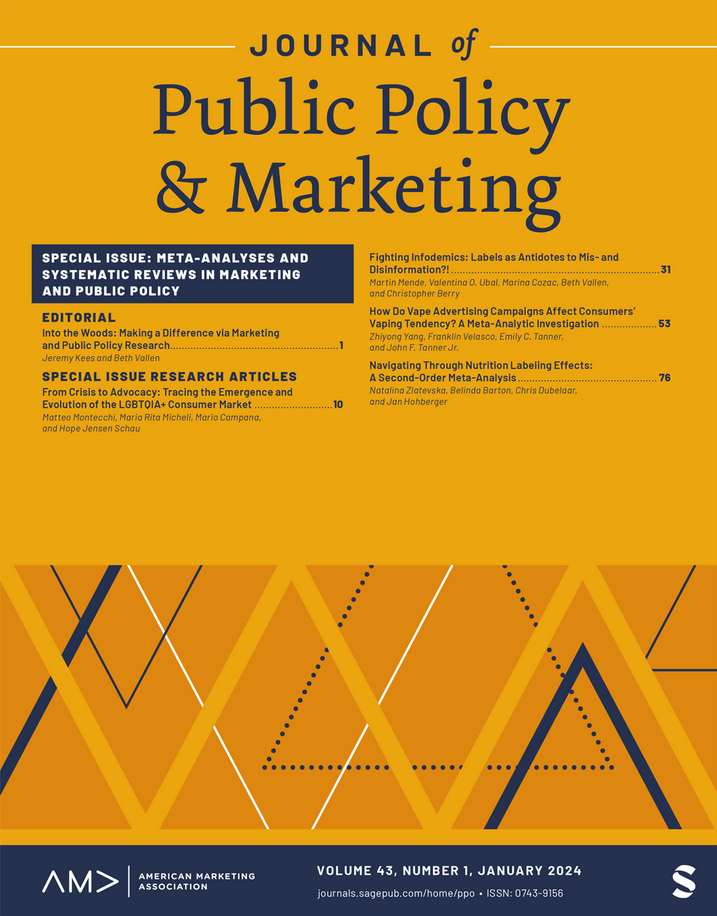灾难恢复:特设营销系统如何为服务提供建立和动员社会资本
IF 4.7
3区 管理学
Q1 BUSINESS
引用次数: 17
摘要
社区越来越多地面临带来急性和慢性挑战的灾害。先前的研究强调了灾后临时营销交换系统对扩大社区资源能力的重要性。当前的研究建立在这项研究的基础上,对灾难发生前提供交换服务的现有临时营销系统进行了细致的研究。在地震发生之前,这个特别的系统建立了三种形式的社会资本——结构、认知和关系——并扩大了自我组织和学习的潜在能力。在自然灾害之后,特别的营销系统灵活地满足了个人和社区的需求。具体而言,出现了三种类型的学习——常规学习、扩展学习和即兴学习,调动了现有的社会资本来提供恢复服务和产品。这项研究强调,在恢复的几个月和几年里,提供恢复商品和服务作为一种特别的营销系统演变成一种学习系统。通过强调在骚乱发生前建立和实践各种形式的社会资本的重要性,以便在恢复期间调动能力,探讨了对公民、市政当局、决策者和企业的影响。本文章由计算机程序翻译,如有差异,请以英文原文为准。
Disaster Recovery: How Ad Hoc Marketing Systems Build and Mobilize Social Capital for Service Delivery
Communities are increasingly confronted with disasters that bring acute and chronic challenges. Previous research highlights the importance of ad hoc marketing exchange systems for expanding community resource capacities following a disaster. The current study builds on this research, taking a granular look at an existing ad hoc marketing system that provided exchange services before a disaster. Prior to an earthquake, this ad hoc system built three forms of social capital—structural, cognitive, and relational—and expanded latent capacities for self-organizing and learning. Following a natural disaster, the ad hoc marketing system flexed to meet individual and community needs. Specifically, three types of learning—routine, extended routine, and improvisational—emerged, mobilizing existing social capital to deliver recovery services and goods. This study highlights the delivery of recovery goods and services as an ad hoc marketing system evolved to become a learning system during the months and years of recovery. Implications are explored for citizens, municipalities, policy makers, and businesses by highlighting the importance of building and practicing diverse forms of social capital before a disturbance so that capacities can be mobilized during recovery.
求助全文
通过发布文献求助,成功后即可免费获取论文全文。
去求助
来源期刊

Journal of Public Policy & Marketing
BUSINESS-
CiteScore
10.20
自引率
15.40%
发文量
29
期刊介绍:
Journal of Public Policy & Marketing welcomes manuscripts from diverse disciplines to offer a range of perspectives. We encourage submissions from individuals with varied backgrounds, such as marketing, communications, economics, consumer affairs, law, public policy, sociology, psychology, anthropology, or philosophy. The journal prioritizes well-documented, well-reasoned, balanced, and relevant manuscripts, regardless of the author's field of expertise.
 求助内容:
求助内容: 应助结果提醒方式:
应助结果提醒方式:


